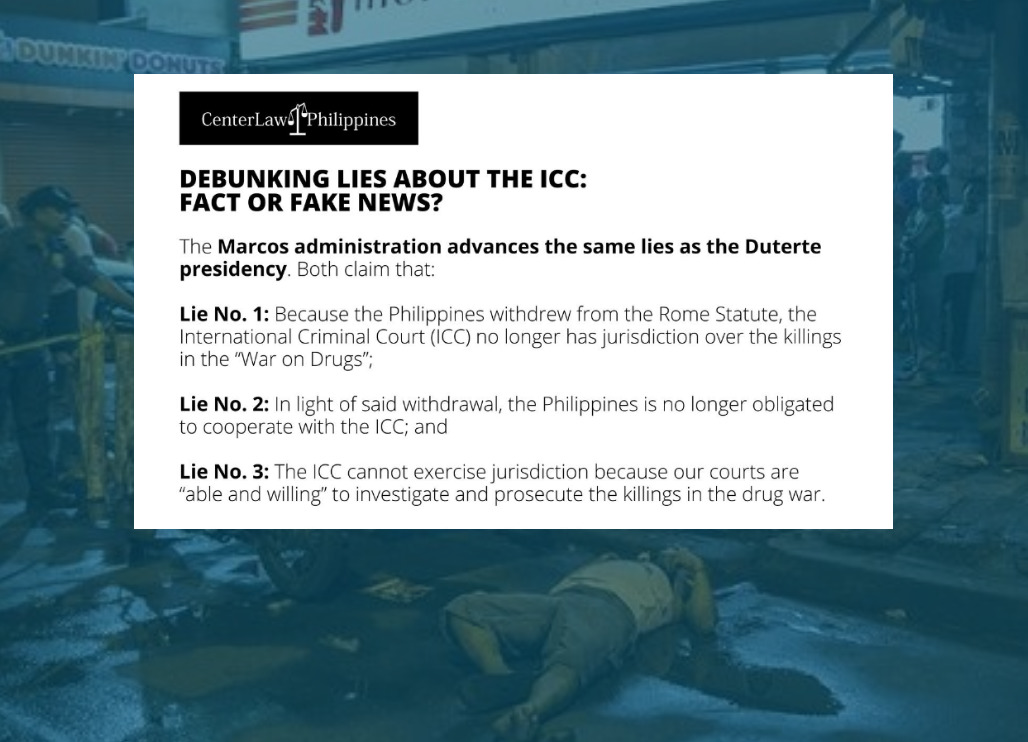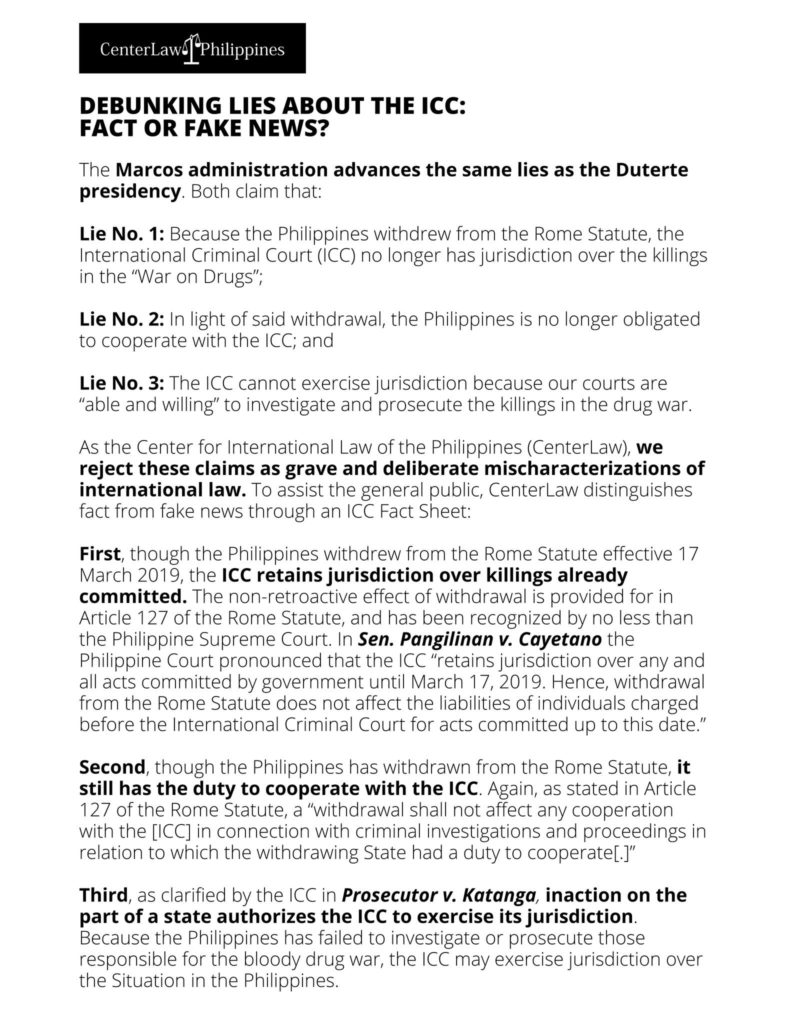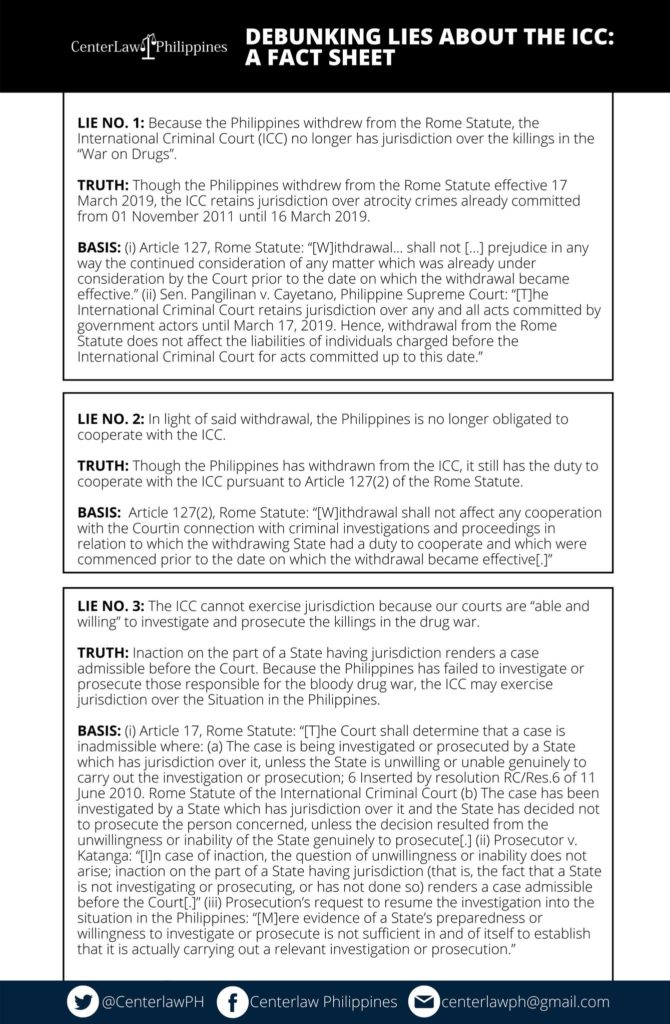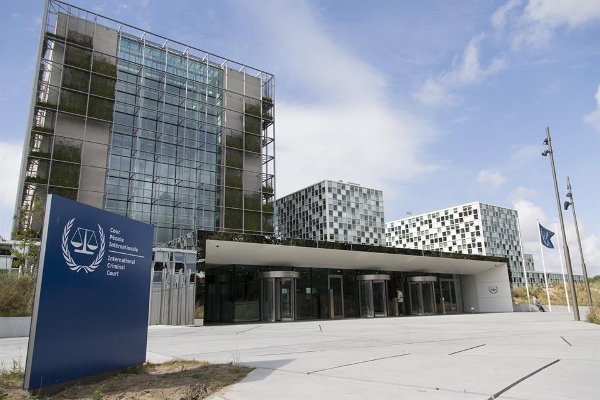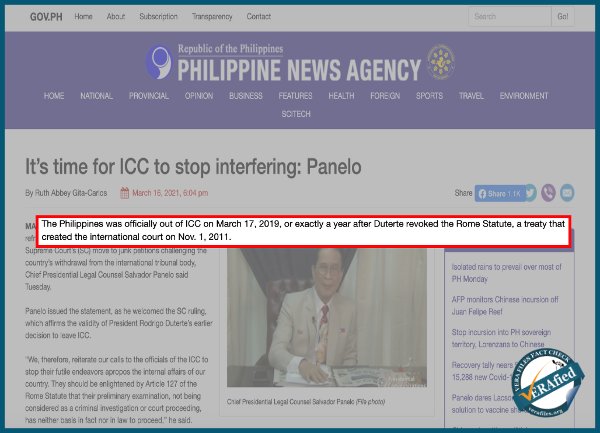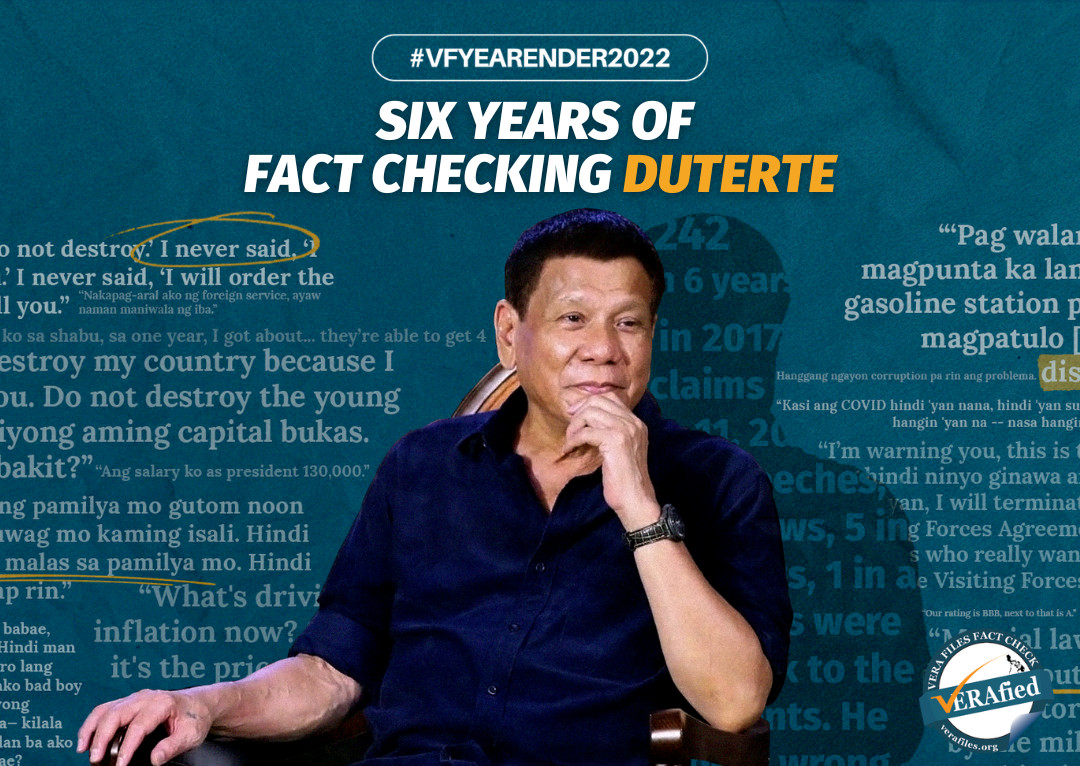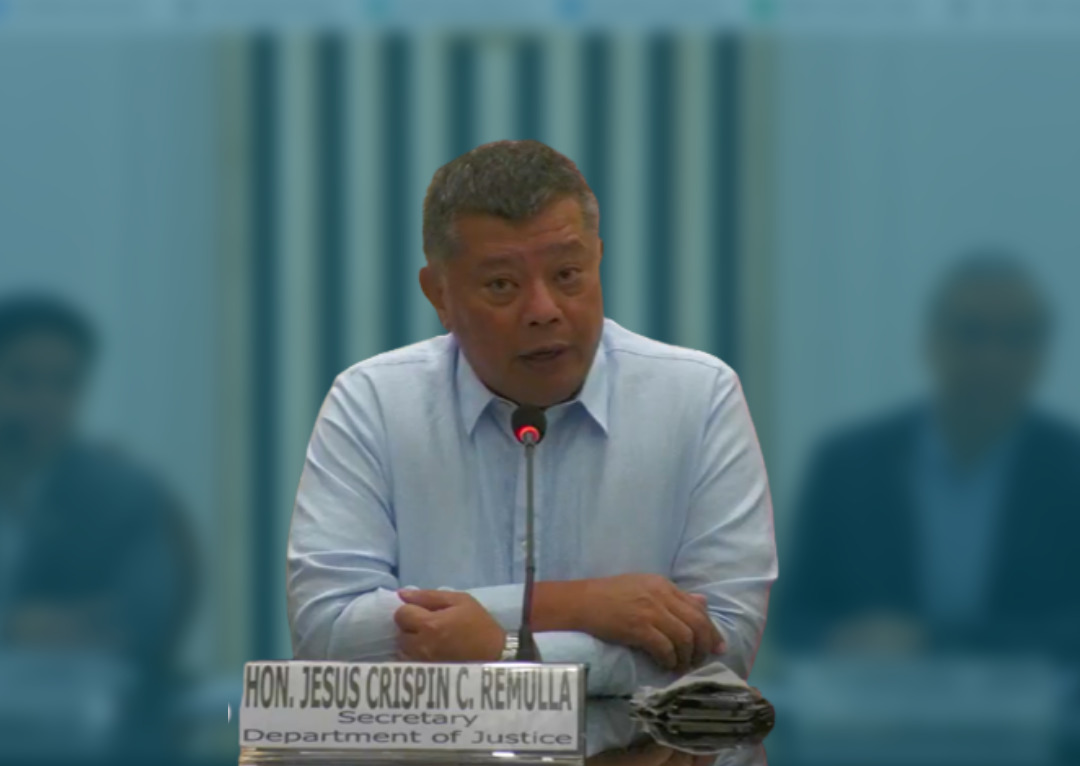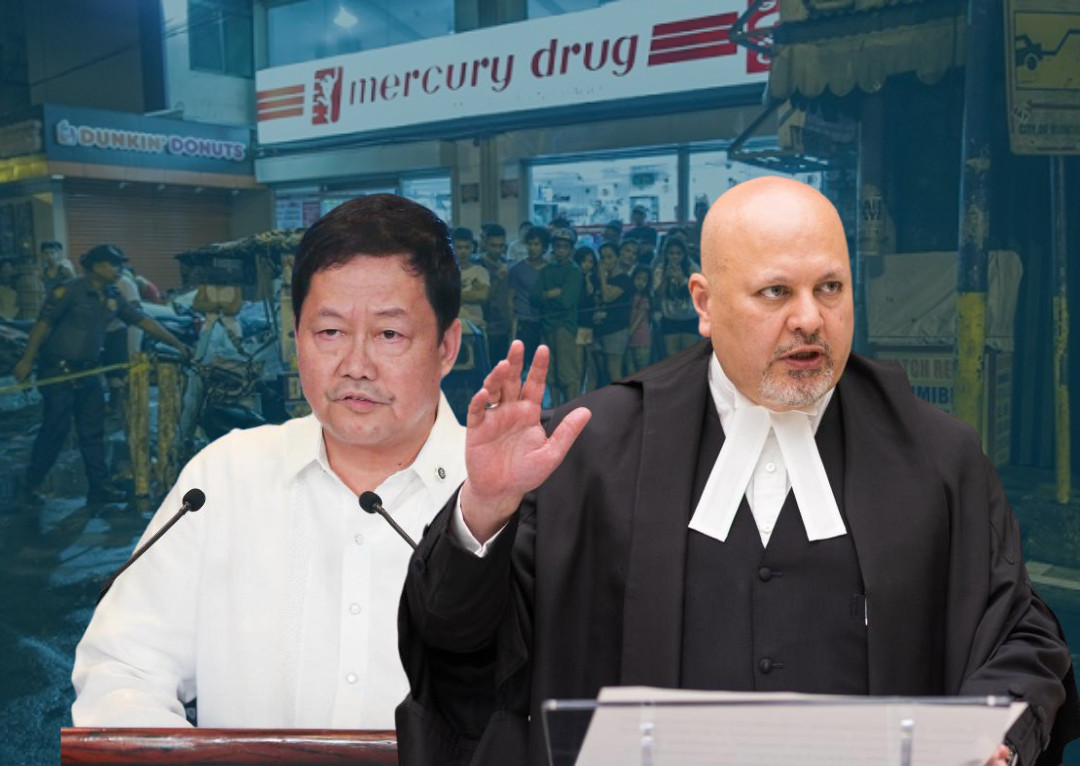Update: Please see Atty. Harry Roque’s reaction to this article below.
A lawyer’s group specializing in international law has debunked three “lies” denying the authority of the International Criminal Court (ICC) to investigate the Philippine government’s controversial anti-drug campaign.
In an Aug. 5 statement, the Center for International Law of the Philippines (CenterLaw) rejected false claims, particularly that the ICC cannot investigate the crimes in relation to the government’s “war on drugs” due to the country’s exit from the Netherlands-based court in 2019.
“As the CENTER FOR INTERNATIONAL LAW of the Philippines …, we reject these claims as grave and deliberate mischaracterizations of international law … The Marcos administration advances the same lies as the Duterte presidency,” the group said.
To help clarify the issue for the Filipino masses, CenterLaw produced a two-page explainer that “distinguishes fact from fake news” about the ICC probe.
Read their fact sheet here:
Among the individuals denying the jurisdiction of the ICC is Harry Roque, former chairperson of Centerlaw. Ironically, during his tenure as CenterLaw chair from 2005 to 2015, Roque pushed for the Philippines’ entry to the ICC in 2011. He would eventually change his stance about the international court when he became the presidential spokesperson under the Duterte administration. The drug war campaign of former President Rodrigo Duterte is among the main subjects of the ICC probe.
An accredited lawyer in the ICC, Roque claimed the Philippines is no longer obliged to cooperate with the court as it is no longer a member. Instead, he challenged drug war victims to go ahead and file cases against Duterte before local courts, insisting the justice system is functioning.
The ICC investigation, temporarily suspended since November 2021, focuses on alleged crimes against humanity committed during the drug war campaign from Nov. 1, 2011, to March 16, 2019. The investigation covers the thousands of killings under the Duterte administration, including executions in the Davao region by the so-called Davao Death Squad as early as 2011. (See ICC authorizes full-blown probe into Duterte’s drug war – VERA Files)
The ICC drug war probe again drew attention this week after President Ferdinand “Bongbong” Marcos Jr. on Aug. 1 declared the Philippines would not rejoin the court as a member. Duterte ordered the country’s withdrawal from the ICC on March 17, 2018, which took effect a year later. (See Marcos’ declaration that PHL will not rejoin ICC a ‘terrible mistake’)
Marcos, however, said that his legal team, composed of top officials like Justice Secretary Jesus Crispin Remulla and Solicitor General Menardo Guevarra, is “closely studying” how to deal with the ICC.
On July 14, the government was invited by an ICC pre-trial chamber to submit “additional observations” by Sept. 8 on the request of the court’s prosecutor Karim Khan to resume the suspended drug war probe. (See ICC chamber invites victims, PHL government to submit ‘views, concerns’ on call to resume drug war probe)
Harry Roque’s statement:
This story has factual errors and erroneous conclusions.
I never said that ICC lost its jurisdiction on the Philippines completely upon our withdrawal. While the ICC may have retained subject matter jurisdiction over the period of time that we were a party to the Rome Statute, its jurisdiction is still subject to the defense of admissibility that it is being investigated and prosecuted by local authorities and that the local legal system is able and willing to investigate and prosecute.
Further, I have never changed my position that the ICC is a court of last resort and never a court of first instance.
Contrary to your report, I have never flip-flopped on this issue. I know my international law, and you attribute to me a statement someone else may have made.
I was chair of Centerlaw until 2017 when I became a spokesperson.
As a journalist, the professional thing to do is to interview the person before you attribute anything to him in your report. The reporter never sought me.
